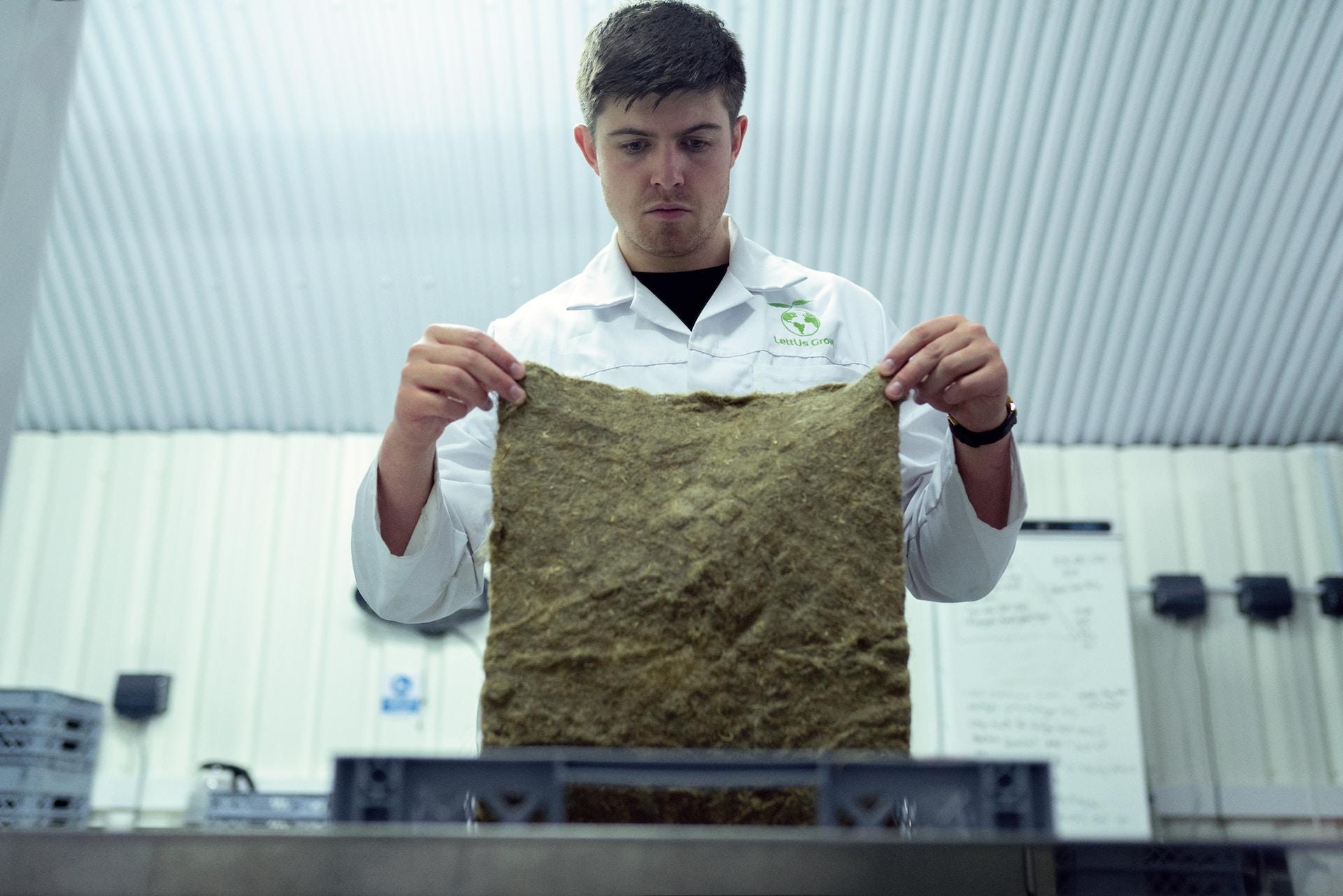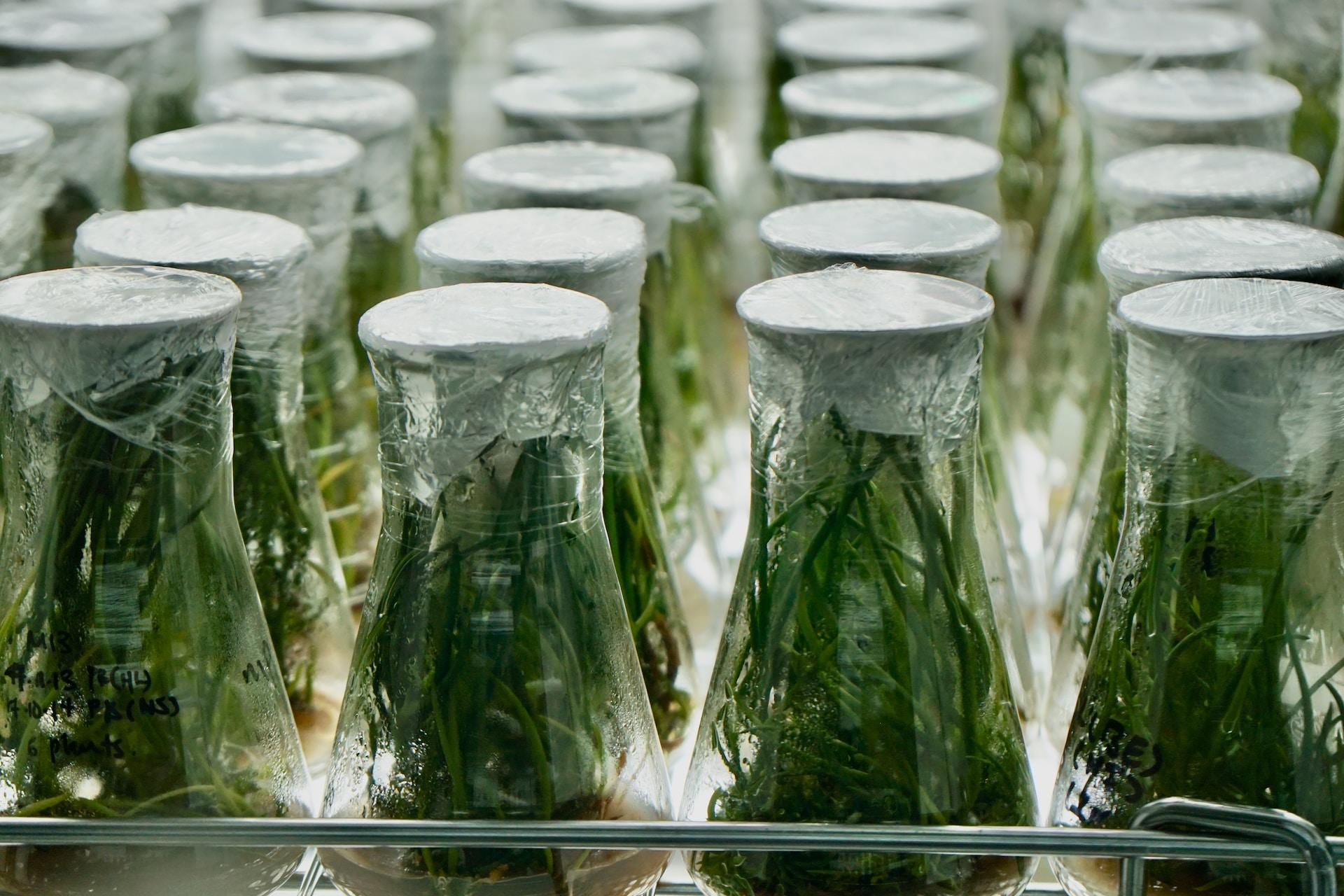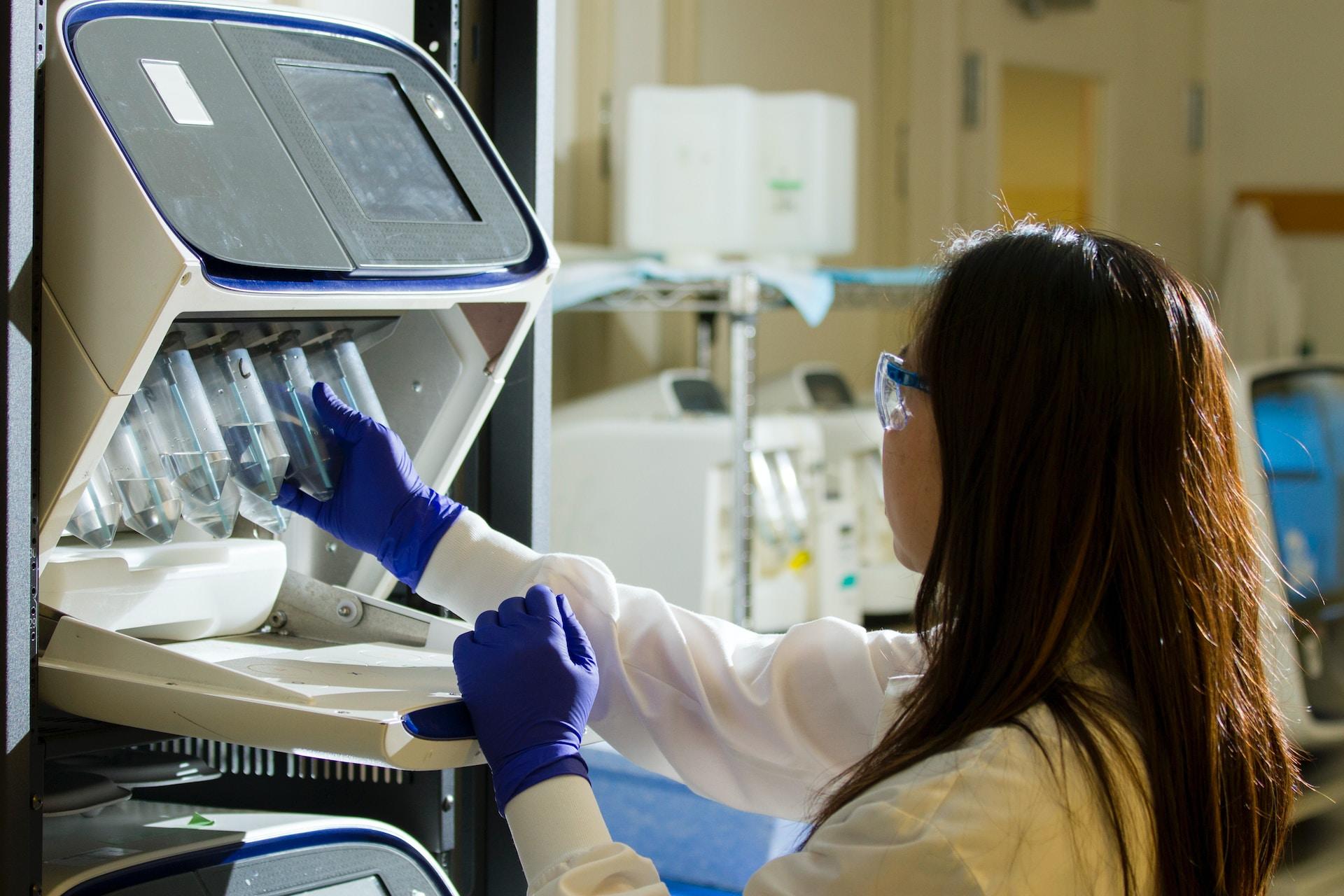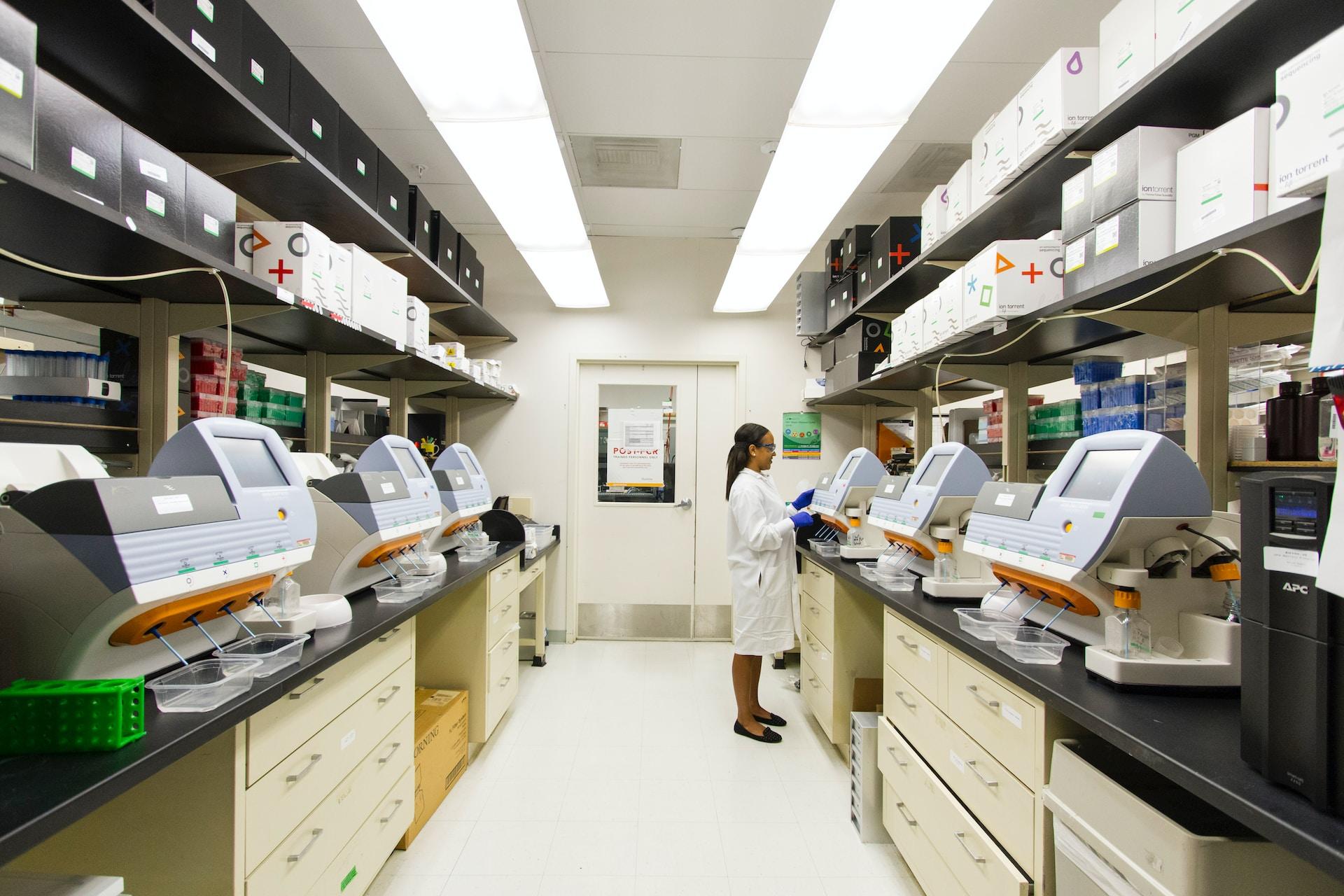“I want to be a biochemist!”
Thinking about your future in vague terms is exciting and fun, mostly because you can just believe that anything can happen, and you don’t have to make a solid plan for it.
But what happens when you actually do want your dream plan to come to fruition? How do you act on your grandiose idea to become a highly specialized scientist and actually get the education required to live out your scientific dreams?
It’s not a fast or easy journey from pre-college student to scientist, but it’s an intensely rewarding career for the passionate people who make it.
So, let’s find out what you need to do to take action on your goal!

What is a Biochemist?
Let’s make sure you’re thinking of the proper career before you commit.
“Biochemist” might conjure images of a white-coated scientist experimenting with chemicals in a lab. Perhaps they are using plants or animals as test subjects. All day, they mix beakers of chemicals and try to discover new things about cells.
While some of that image is partly true, the role of a biochemist is a lot more broad.
The Study of Life
Biochemistry involves studying the chemical and physical properties of living things, including biological processes such as cell development, growth, heredity, and disease.
You’ll often see the term “biophysicist” alongside “biochemist” because the two studies are similar.
Biochemists design and run lab tests and long-term research projects. They read tons of other studies and collaborate with other members of the scientific community to share information with one another.
The purpose of a biochemist’s studies is to learn more about the life processes of plants and animals, including microorganisms.
Particular Set of Skills
While biochemists are often said to have a “straightforward” career path, that doesn’t mean there are only a few directions to go in.
What that means is that there are only a few ways to get to the job title you’d like, but there are many job titles to choose from.
Biochemistry is a rather specific set of education, making it highly sought-after. If you combine biochemistry with another discipline, like medicine or agriculture, you open up even more interesting and niche job opportunities.
Varied Job Market
Since a biochemist has a unique education and skillset, there are a lot of jobs available in numerous industries.
Biochemists may work in a scientific lab specifically for the sake of science, or they may work within an industry like agriculture, medicine, engineering, environment, cosmetics, pharmaceutical, nutrition, toxicology, or others.

Who’s a Good Fit For Biochemistry?
To be a biochemist, it’s best if you fit the personality and qualities of most biochemists.
Analytical & Critical Thinking Skills
First of all, you need to have the wits to take on such a difficult subject.
It’s best if you can pick up new information quickly and find ways to understand it thoroughly. Being able to apply things you’ve learned to new situations is critical.
You’ll also need to be able to run experiments on your own without guidance (once you’ve been taught), as well as be able to draw your own correct conclusions and provide data to support your stance.
Self-Directed Study Skills
Most of the foundations of biochemistry will be learned outside the classroom. Since it’s such an information-heavy subject, there is no way to fit everything into class time.
Your ability to learn everything at the pace needed requires that you take the initiative to study on your own and make sure you understand.
If you’re having trouble learning, you can always get help through biochemistry tutoring!
Perseverance
If you want to succeed in biochem, you’ll need to have thick skin and a willingness to overcome hardships in your studies.
Experiments will fail, some concepts will be harder for you to grasp than others, and you will feel like quitting at least once.
Keep going, and you’ll come out on the other side with an appreciation for the science and your own grit.
Interpersonal & Communication Skills
A large part of being in the scientific community requires you to be able to communicate well on a professional and interpersonal level.
The ability to communicate in written and verbal form is paramount so you can give and receive necessary information properly. You’ll need to eliminate miscommunication and misunderstandings as much as possible for the sake of science and important personal relationships between colleagues.
Math Skills
There’s no way around it: science requires math. You’re likely to have a penchant for math if you’re looking to join a chemistry-adjacent field, but just in case you weren’t sure, you do need very strong advanced math skills. Formulae and calculations will be a daily part of the science, as are statistics, data analysis, algebra, and calculus.

What Education is Required to Be a Biochemist?
You can receive a bachelor’s, master’s, doctorate, and certificates in biochemistry and closely-related subjects.
But what is needed if you want to achieve the exact job title “Biochemist”?
High School Classes
If you are able, taking classes in the natural and physical sciences will give you a leg-up in your college application and 101 classes. You should also take the most advanced math classes you can handle.
Some titles of classes you might opt for include:
- Biology
- Chemistry
- Earth Sciences
- Environmental Science
- Oceanography
- Geology
- Anatomy
- Physics
- Botany
- Zoology
- Ecology
- Geography
- Microbiology
- Algebra
- Geometry
- Trigonometry
- Calculus
- Statistics
Undergrad College Courses
In your bachelor’s program, you should enroll in a Biochemistry major, if possible. If you aren’t able to attend a school with a specific Biochemistry major, you can also enroll in a Biology or Chemistry program, though the transition to biochemist later may be more difficult.
No matter the program, be sure to take chemistry classes as well as biology classes, in addition to specific biochemistry classes.
Some of the class names you will want to take to get the proper education might include names like:
- Physical Chemistry with a Biological Focus
- General Chemistry
- Organic Chemistry
- Calculus for Life Sciences
- Calculus with Analytical Geometry
- Analytical Chemistry
- Biophysical Chemistry
- Waves, Optics, Atoms, and Nuclei
- Genomics And Proteomics
- Biostatistics
- Organometallic Chemistry
- Spectroscopic Techniques For Structural Identification
- Polymer Chemistry
- Air Pollution Chemistry
- Environmental And Occupational Sampling And Analysis
- Intro to Immunology
- Neuropharmacology
And lots and lots of labs!
Some colleges may have a requirement such as a minimum required GPA for all your core classes in order for you to achieve the degree at the end of your studies.
With a bachelor’s degree in biochemistry, chemistry, or biology, you can enter the workforce as a lab assistant or technician, or research assistant.

Master’s Degree
Depending on if you have an area of special interest, you can choose to complete a general master’s in biochemistry or look for one with a concentration in a subject like Biodefense, Bioinformatics, Biotechnology Enterprise, Molecular Targets and Drug Discovery Technologies, Regenerative and Stem Cell Technologies, or Regulatory Affairs.
You’ll generally need to complete some mandatory classes, and some electives, and present either a thesis or capstone before receiving your degree.
With a master’s, you can pursue careers like:
- chemistry lecturer
- drug discovery scientist
- government scientist
- high school teacher
- pharmacology scientist
- research and development scientist
- science consultant
Doctorate Degree
If you want to go even further and get a Ph.D., you can specialize in even more honed areas of study, such as
- Biophysics and Structural Biology
- Cancer Biology
- Chemical Biology and Proteomics
- Cell Biology
- Cellular Stress and Cell Signaling
- Developmental and Stem Cell Biology
- Genetics, Genomics, and Gene Regulation
- Immunology and Infectious Diseases
- Neurobiology
- Translational Research
Your doctorate studies will consist of advanced core and elective courses, research labs, and a thesis. With a doctorate, you can pursue careers such as:
- Research Scientist
- Professor
- Science Policy Adviser
- Biotech Executive
- Senior Scientist
- Patent Lawyer
- Science Policy Analyst/Advocate
- Science Writer/Journalist
- Biological Sciences Teacher
Online Biochemistry Classes
Can you pursue a bachelor’s, master’s, or doctorate degree in biochemistry online?
Yes!
With the widespread use of the internet, some institutions have adapted their programs to accommodate students who are not able to be on campus - even for labs!
The only university in the U.S. that currently offers a specific biochemistry class online is Arizona State University. They allow students to either spend one week on campus to complete all the labs at once or find a partner lab close to their respective location to do the lab work instead.
Some other colleges have programs in the vein of biochemistry but are not exactly the same.
What Practical Experience is Required to Be a Biochemist?
You should be able to gain the experience you need during your study period since your college or university will give you lab experience.
For undergraduate degrees, you may or may not have an opportunity to pursue an internship, since many biochem internships require the interns to have already obtained a degree.
For post-graduate programs, you will have access to your institution’s library of research materials, and may even be able to use lab equipment for your own research (especially when it comes to doing your thesis).
At this time, it can be a good idea to seek out an internship during your studies so you can have real-world experience and personal recommendations for the future.
Some employers may not consider candidates with no internship experience, so keep that in mind when choosing whether to become an intern or not! You can also become an intern after graduation in order to gain experience.
If at any time during your biochemistry studies, you feel like you're falling behind, that is the perfect time to look for a tutor who can help you understand the material and hone your study skills. With Superprof, you can find hundreds of tutors for any subject available whenever suits your schedule. Tutors are available in-person and virtually, and offer tutoring for a range of budgets.
(You can also become a tutor if you have the desire to impart your wisdom to others!)
Biochemistry isn’t for the faint of heart. It’s a long educational path full of complex material.
But if you are passionate about the subject, there can be nothing more fulfilling for you!
Learn when you take chemistry classes with a professional Superprof tutor!
Summarize with AI:















